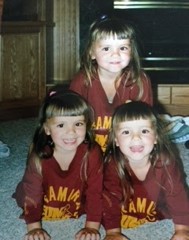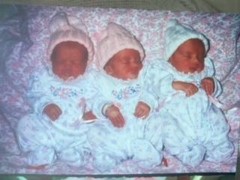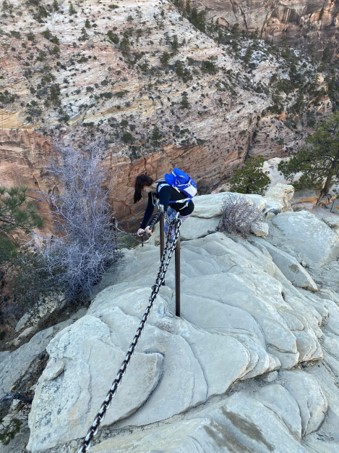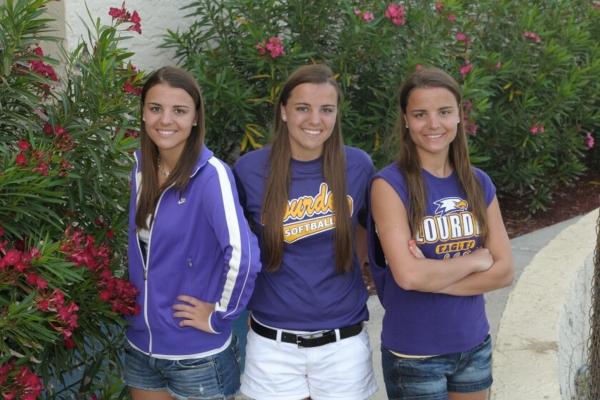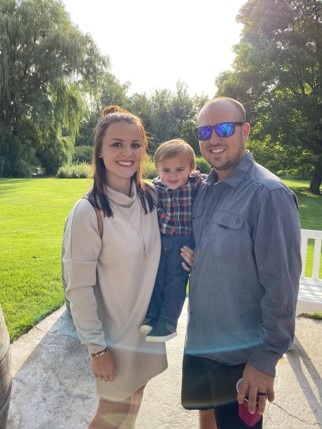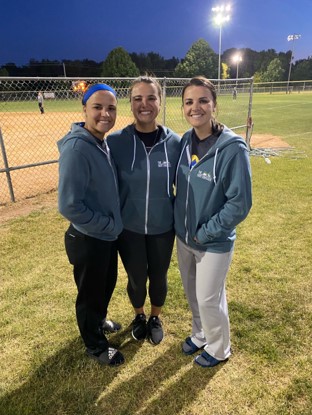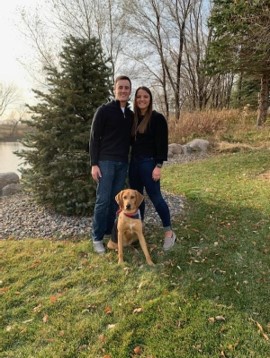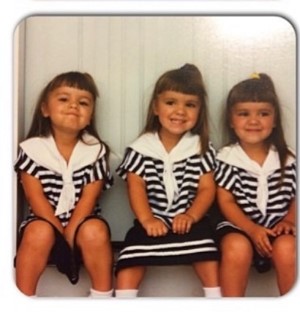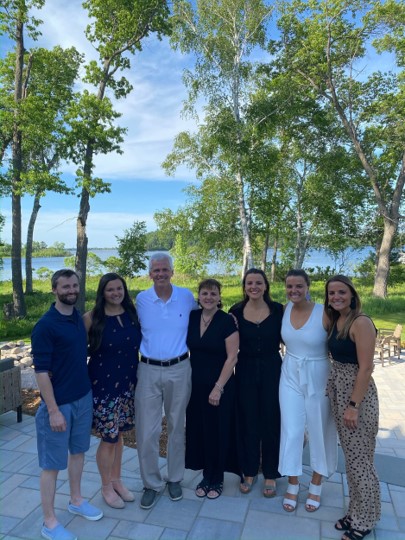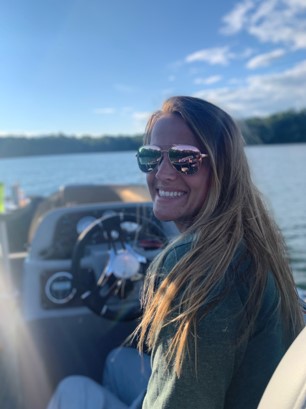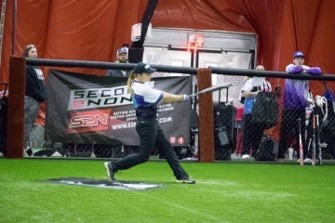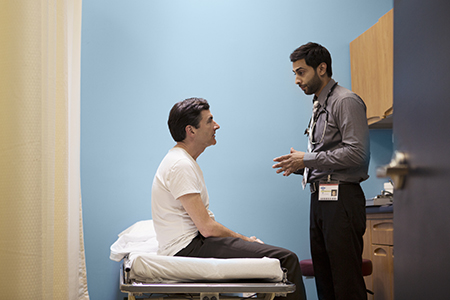Identical triplets receive Medtronic cryoablation for life-threatening heart condition
Inspired by their own experience, sisters give back by working in healthcare
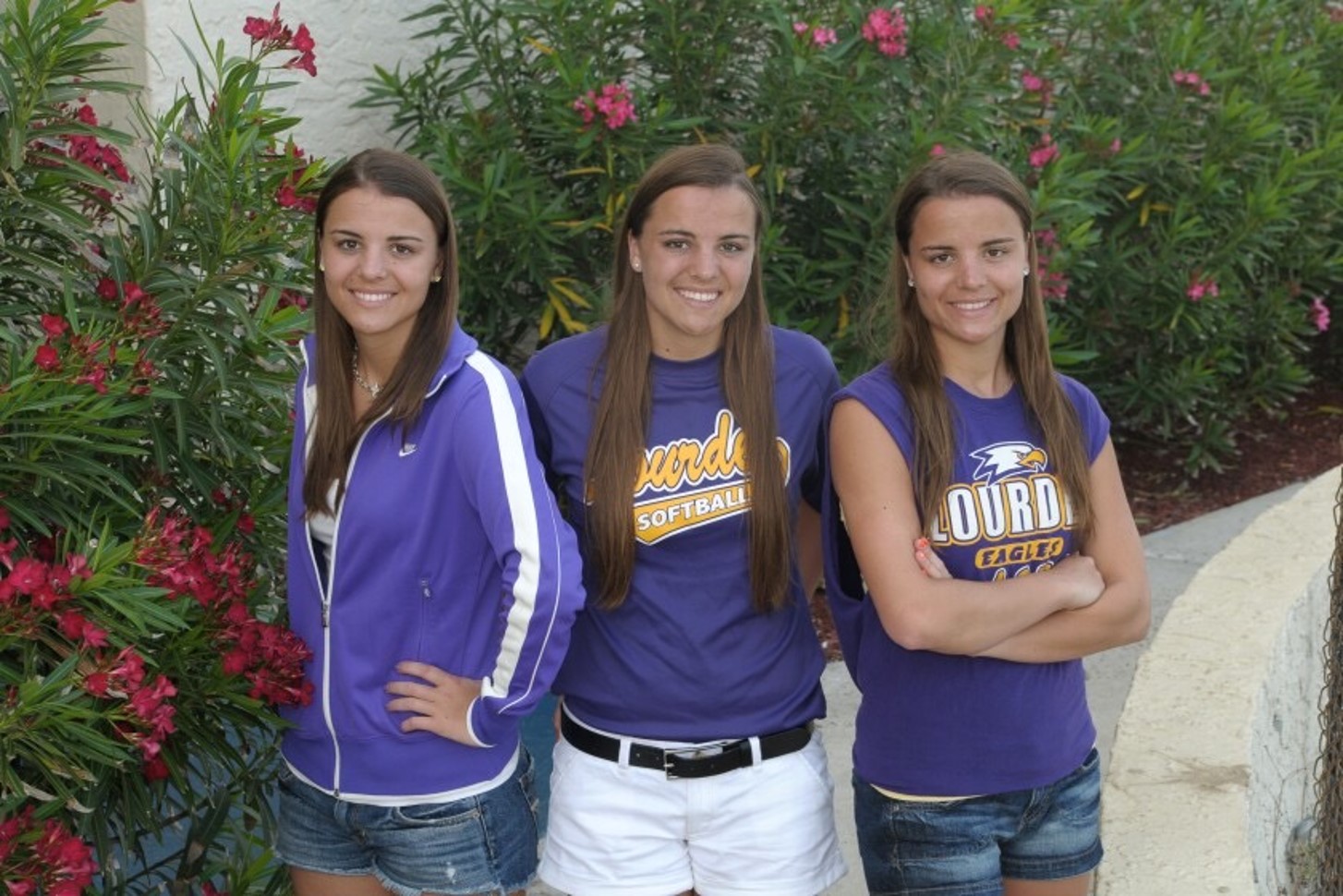
Alyssa Jensen, Hannah Nelson, and Nicole Kriewall are identical triplet sisters from Rochester, Minnesota. All three were well on their way to becoming collegiate softball players as three-sport athletes at Lourdes High School. As seemingly healthy, athletic 17-year-olds, the last thing they thought they had to be concerned with was their heart health.
“I was the first of us to notice it,” Alyssa said. “I would have these incidents where it felt like my heart was literally beating out of my chest. I remember asking my sisters, ‘does this happen to you? Is this normal?’ and they both said, ‘oh yeah, that happens to me too.’”
In fact, this was not normal. All three sisters were eventually diagnosed with atrioventricular nodal reentrant tachycardia (AVNRT). AVNRT is one of the most common forms of supraventricular tachycardia (SVT) and causes a very rapid and life-threatening abnormal heart rhythm. Nearly 35% of AVNRT cases occur in pediatric patients and incidence increases with age. This poses a tremendous burden on a patient’s life and can impact cognitive and emotional development.
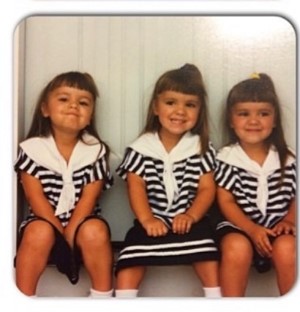
“I remember feeling like I was going to pass out during one of my soccer games,” Nicole said. “I had to sub off and put my feet up. I think because all three of us experienced this, it went without notice, we thought it was normal.”
Luckily for these sisters, their mom, Dawn, a nurse at Mayo Clinic, suspected something was wrong and took the girls to see Dr. Bryan Cannon, a pediatric cardiologist and electrophysiologist (EP) at Mayo Clinic, who diagnosed them with AVNRT.
Recognizing their desire to continue their active lifestyles with as little disruption as possible, Dr. Cannon felt that the appropriate therapy for the triplets was a cardiac cryoablation with the Medtronic Freezor™ Xtra cardiac cryoablation catheter.
“I recommended cryoablation for the Nelson sisters because we needed a long-term solution for what could be a short-term problem with the right treatment,” Dr. Cannon said. “I knew how important it was for them to be able to get back to doing what they loved as kids, which was sports. Medtronic cryoablation was the best choice to get them back in the game of life, and softball, as soon as possible.”
Recently, the U.S. Food and Drug Administration granted Medtronic expanded approval for Freezor and Freezor Xtra, now the only ablation catheter devices approved by the federal agency for pediatric* AVNRT. The FDA worked alongside Pediatric & Congenital Electrophysiology Society (PACES) to approach Medtronic to seek pediatric approval, as part of the agency’s pediatric device access initiative. The Freezor and Freezor Xtra catheters were identified as a key FDA priority for pediatrics, expanding the indication to specify the pediatric population, due to their safety profile.
“We’re proud of our work with PACES and FDA in this first-of-its-kind, multi-stakeholder initiative to address a critical patient population,” said Rebecca Seidel, president of the Cardiac Ablation Solutions business, which is part of the Cardiovascular Portfolio at Medtronic. “The shared commitment to collaborate and grow this therapy’s unique position to treat AVNRT patients demonstrates our confidence in the proven safety and efficacy of our cryoablation technology.”
Just how effective is this technology? Ask the Nelsons.
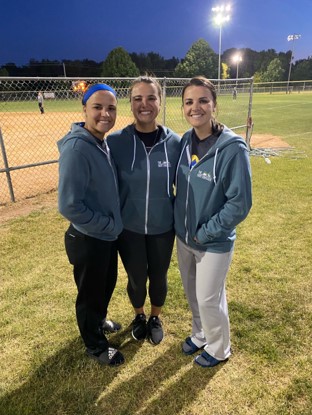
Today, not only do the sisters live full, active lives, but both Nicole and Alyssa now work in healthcare. Nicole is a nurse; she now works on the Mayo Clinic Covid Care Team but started her career in the Pediatric Intensive Care Unit (PICU) at Mayo where she worked with Dr. Cannon and his patients.
“I don’t think you can grow up in Rochester and not consider healthcare as a career,” Nicole joked. “But I do remember the night of the procedure I stayed up and talked with my nurse. He just sat there and talked to me about what I wanted to do after my procedure and what I was interested in. He made me feel really at ease. That nurse will never know it, but he impacted who I wanted to be.”
Alyssa, a certified surgical assistant at Mayo Clinic, says she’s happy to share her experience with AVNRT, particularly with parents and caregivers of children facing similar life-threatening illnesses.
“Our story is a great example of parents listening to their kids and taking them seriously when they say something feels off,” she said. “Not every kid is willing to say something isn’t right, so the more information and more options that are out there, the easier it will be to provide all kids with a better, healthier life.”
This patient testimonial is based on these individuals' experience. The experience other individuals have with the therapy could be different. Experiences vary. Please talk to your doctor about your condition and the risks and benefits of this therapy.
Important Safety Information
Catheter Ablation for atrioventricular nodal re-entrant tachycardia (AVNRT)
Complications, while infrequent, can occur during catheter ablation. Some of the risks include bleeding and bruising where the catheter was inserted, temporary or permanent shortness of breath, infection, temporary or permanent stroke, complications that may lead to hospitalization or potentially death. Your physician can further explain these complications as a part of a comprehensive risk/benefit evaluation, as you consider catheter ablation for your condition.
This treatment is prescribed by your physician. This treatment is not for everyone. Please talk to your doctor to see if it is right for you. Your physician should discuss all potential benefits and risks with you. Although many patients benefit from the use of this treatment, results may vary. Information on this site should not be used as a substitute for talking with your doctor. Always talk with your doctor about diagnosis and treatment information. For further information, please call the Medtronic toll-free number at 1-800-551-5544 (8:00 a.m. to 5:00 p.m., Monday–Friday, CT) or see the Medtronic website at www.medtronic.com.

